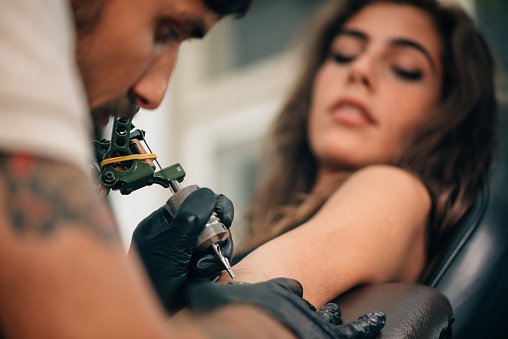Tattoo Artist Training

As a tattoo artist, you need to understand the skin and how it responds to tattoos. You need to know how to evaluate skin health, minimize trauma, and know the best practices for clean healing. You also need to understand tattoo machines and the proper care and maintenance of equipment. In addition, tattoo artists should be knowledgeable about sanitation and cross-contamination. Tattoo artists need to have a high work ethic. Many of them are booked months or even years in advance, so there is little room for error. In addition, tattoo artists can't afford to take days off, so they must be extremely diligent in their work. In addition, tattoo artists need to learn how to communicate with clients. There are many ways to get training as a tattoo artist. You can apply to tattoo studios and apprentice with tattoo artists. However, tattoo apprenticeships are rare and are typically taken by people with connections. Apprenticeships are expensive, so it's important to choose the best one for you. While apprenticeships can be beneficial, you will need to have a certain level of confidence and experience to become successful. As a tattoo artist, you'll likely have your own style, but taking courses at floridatattooacademy.com to learn other styles can expand your range and increase your client base.
If you're serious about tattooing, you can also consider taking degree programs in art or another field. Taking an art class can help you improve your drawing skills and develop your style. While you're at it, don't forget to build an online portfolio and build a personal brand. You'll need to license your work to various places, so make sure to research the requirements for licensing. The Tattoo Artist Accelerator Program is a systematic way to train as a tattoo artist. It's a four-year program taught by instructors with over 40 years of experience. The courses feature personalized feedback from tattoo artists and a supportive community.
There are a variety of tattoo artist training options, ranging from apprenticeships to online courses. Look for more facts about tattoos at https://www.youtube.com/watch?v=ciFnAm_ga44. As a tattoo artist, it's important to have a variety of styles and a strong portfolio. Even though you might want to specialize in one style, tattoo shop owners prefer artists who have versatility. In the beginning, you'll be doing walk-ins at the tattoo shop, so you'll need to show a variety of styles. As you work your way up, you'll have more time to develop your own style. Tattooing is a demanding job. A tattoo artist can sometimes perform up to six tattoos a day, so keeping your cool under pressure is essential. The pressure of tattooing requires you to be able to balance multiple tasks while ensuring that you're not late for an appointment.
A good tattoo artist should be able to stay calm and maintain a good work ethic. A tattoo artist must have a high level of knowledge about human anatomy and skin hygiene. During their training, they should learn about the skin's different layers, from the epidermis to the dermis, as well as the underlying muscles. Knowledge of the skin's anatomy is vital for tattoo artists because it helps them avoid complications and scarring. Get additional reading here!
